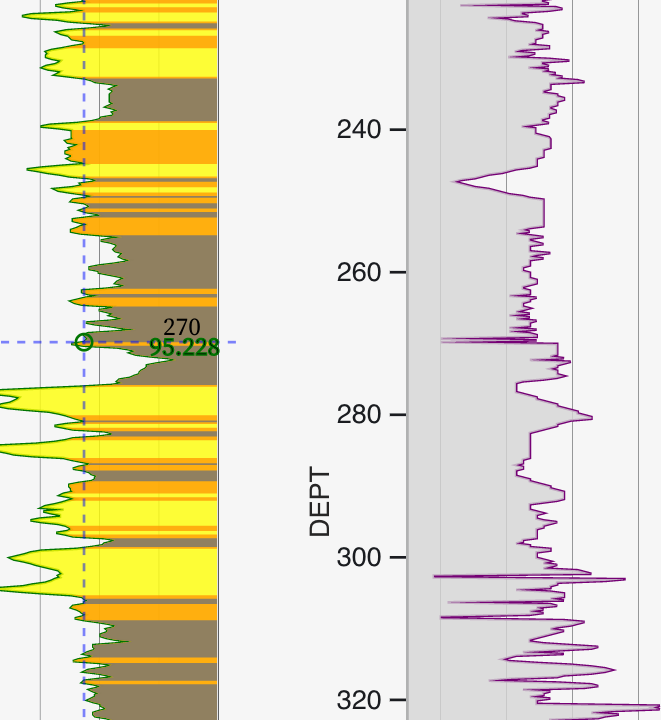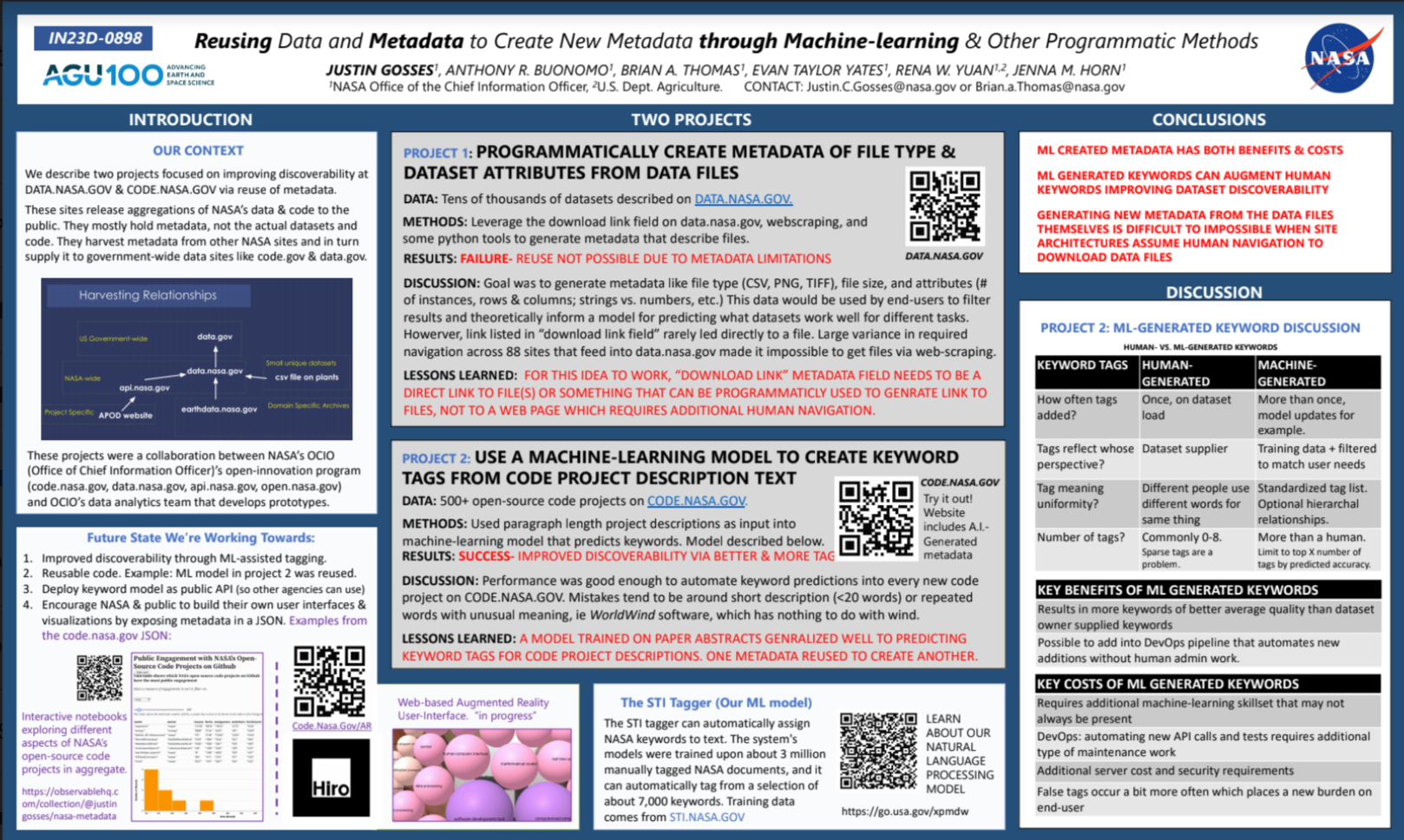Geophysics Hackathon at S.E.G. annual conference, 2015
October 17th – October 18th, 2015 – New Orleans
Over the weekend, I took part in a Geophysics Hackathon run by Agile Geosciences before the 2015 Society of Exploration Geophysicists annual meeting. A hackathon is when people get together and try to create one or more instances of software, web app, webpage, etc. The themes for this hackathon were geophysics and machine learning.The event started with putting ideas up on a white board then splitting into groups to work on the ideas each group felt they could accomplish in two days.
Projects
One group took on the problem of turning a map and color bar image into data that could be manipulated or parsed. To be more specific, they were trying to replace the color values in the image with data values, using the color bar as a guide.
I worked with a loosely connected group of subgroups whose goal was to do machine learning data analysis of paper information (author, title, abstract, keyword, etc.) scraped from the web. There was a front-end team that focused on building a website that ran and displayed other teams code/results. There was a machine-learning team that focused on using natural language algorithms and principal component analysis to find relationships within Geophysics paper data. I worked on the “back-end” team. We took a large messy json file containing data on paper title, author, DOI, keywords, citations, and abstract scraped from the S.E.G. website by Matt Hall and cleaned / parsed it using python.
Lessons Learned
- Pair coding was great at immediately catching small mistakes that would otherwise hide in plain sight. Pair coding is when two people look at the same code as it is written, switching up who is typing.
- Having multiple sub-groups was great for speed but led to some code being written that wasn’t useful, at least in terms of being used for the demo at the end of Sunday.
- Something I already knew but was certainly reinforced this weekend was that I need to learn more JavaScript and google app engine to effectively put any python scripts I create on the web in a useful format.
Demos
Sunday afternoon was a mad rush to turn ideas and code into an actual demo.
As the backend team, we had a PowerPoint that listed what our code did, basically reorganize data. I’ll admit not the most interesting presentation. The front end team, however, had been working on putting small quick visuals on the web. This link shows how the work of the machine learning team could be integrated to produce article recommendations based on authors the user selected. The idea was to have the user input a keyword to start, but the front-end team ran out of time, so for now it just asks what you had for breakfast (which doesn’t change anything).
Several of the projects from past years have gone from demos at the end of the two day hackathon to be developed into fully operational web apps. A great example is PickThis, a crowdsourced seismic and medical imaging heat map.



0 Comments